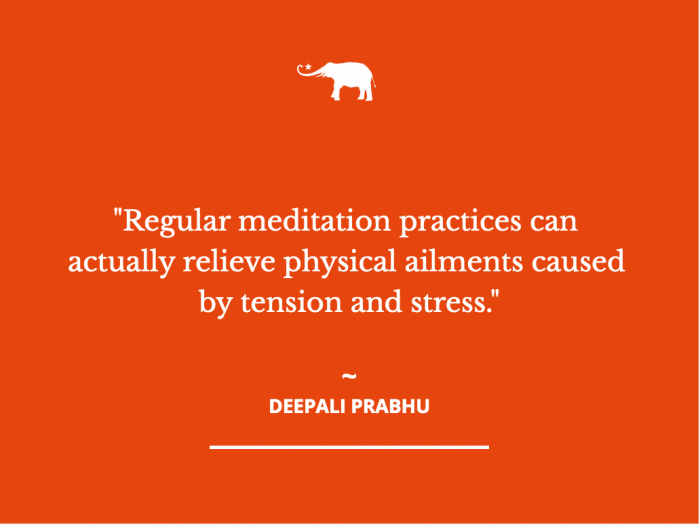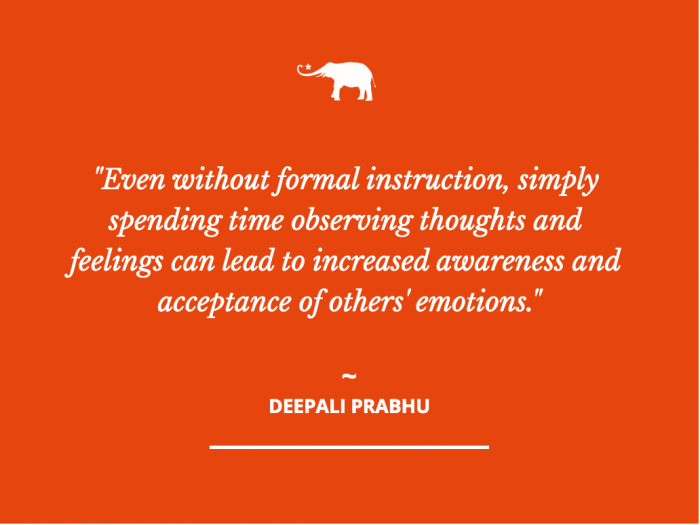Meditation has been around for centuries, but it’s only recently that Western society has started to take it seriously.
From the Buddha to Einstein, the world’s most prominent thinkers have espoused the benefits of meditation and helped to bring it to the Western world.
It should be no surprise that so many people are searching for ways to sit and relax—it’s one of the essential components of meditation.
But there are so many myths and misconceptions about meditation out there.
To bring some clarity to this murky topic, I put together a list of 10 facts you didn’t know about meditation:
1. It can lower stress.
The first thing that comes to mind when someone mentions “meditation” is probably sitting still with our eyes closed in silence. While this may seem like the essence of what meditation is all about, it isn’t always necessary. In fact, research shows that even just five minutes per day of focused breathing or mindful movement can help reduce anxiety and depression. Moreover, studies show that mindfulness-based interventions such as yoga, tai chi, qigong, and other forms of exercise can also improve mental health outcomes.
2. It can improve focus.
In addition to reducing stress, meditation helps increase concentration by training the brain to pay attention more intently on certain stimuli. This means that if you’re trying to learn something new, meditating before class will make learning easier because you’ll already be able to concentrate better than usual. It might also help students who struggle with procrastination: if you’ve ever found yourself staring at Facebook instead of studying for an exam, try practicing mindfulness during those moments. The act of focusing on your breath while thinking about nothing else will train your brain to become less distracted by external stimuli.
3. It can increase self-awareness.
One of the biggest reasons why people give up on their goals is because they don’t realize how far along they really are toward achieving them. By becoming aware of these small steps, we can see where we need to work harder and reach our full potential. A good way to do this is through guided imagery exercises. These techniques allow us to visualize success, which allows us to feel motivated to keep going. As long as we practice being present throughout every step of reaching our goal, we won’t get discouraged when things start getting hard.
4. It can decrease pain.
If you suffer from chronic backaches, headaches, migraines, arthritis, fibromyalgia, and so on, then chances are you spend hours each week lying on a couch or bed. However, according to recent scientific evidence, regular meditation practices can actually relieve physical ailments caused by tension and stress. Studies suggest that the relaxation response triggered by meditation reduces muscle stiffness and increases blood flow, allowing muscles to heal faster. And since most of us have experienced the effects of stress firsthand, it makes sense that meditation would provide relief from its symptoms.
5. It can increase empathy.
Meditation has been shown to boost compassion levels among both practitioners and non-practitioners alike. When we stop judging others based on superficial characteristics and begin seeing everyone as equal human beings, we automatically develop greater understanding toward others. Even without formal instruction, simply spending time observing thoughts and feelings can lead to increased awareness and acceptance of others’ emotions.
6. It can promote creativity.
How do you get more creative in life? Meditation has been shown to have a positive effect on people in a number of ways. In the workplace, meditation has been shown to improve creativity. In a study of medical student’s performance, it was found that those who meditated regularly were more likely to have better performance scores. It has been shown that ability to focus has been shown to improve in those practicing meditation. Also, meditation improves memory retention, especially in older adults.
7. Meditation can improve memory.
When we think of meditation, many of us associate it with sitting quietly by ourselves, but there are other forms of meditation too. There are different types of meditation, such as mantra meditation, focused breathing meditation, body-scan meditation, loving-kindness meditation, mindful yoga, and much more. Some studies show that all of these methods have similar benefits for improving mental health and well-being. The main thing about any form of meditation is that it helps create an inner calmness, helping one become less reactive and more able to cope with stressful situations. This means that if you want to be happier, healthier, and calmer, then try some type of meditation today.
8. It can improve the immune system.
In addition to reducing anxiety, depression, and insomnia, research shows that mindfulness training also boosts immunity. One study showed that participants reported fewer colds after doing just 10 minutes of daily meditation compared to control groups. Another study demonstrated that even brief periods of meditation could reduce inflammation. So not only does meditation help fight off illness, it may also protect against disease.
Here’s how to meditate:
There are several techniques used when learning how to meditate. Here are two popular ones:
1. Focused breathing. Start out slowly, focusing your attention on inhaling through your nose while exhaling through your mouth. Once you’ve mastered this technique, move into deep abdominal breaths where you breathe deeply from your diaphragm instead of using your chest.
2. Mantra meditation. A simple way to start meditating is to repeat a word over and over again until you become familiar enough with its meaning so that you don’t need to say it anymore. For example, “Om” or “Aum.” Other words include, “I am grateful, I love myself, I forgive, I accept, I let go…”
You might find yourself saying them aloud or silently repeating them mentally. If you’re feeling stressed out, take a few moments to sit down and reflect upon what you would like to change in your life. Then choose a word to use during meditation. Repeat it either internally or externally. After a short period of time, switch back and forth between internal and external repetition. Try switching every five minutes or so.
The key is consistency.
Some people also use crystals during their meditation practice. They believe that certain stones hold energy that will help them feel relaxed and peaceful. Others claim they experience visions while meditating. Whatever works best for you, make sure you keep up your regular practice.
Some people believe that it is important to cleanse your crystals in water before you use them while you are meditating. Be sure you know which crystals can be cleared in water and which cannot, as some have a risk of getting dissolved.
All in all, meditation has been proven to be beneficial for our physical and emotional well-being. It’s easy to incorporate into everyday life and should definitely be part of everyone’s routine.
If you want a better concentration, a greater self-awareness, a calmer mind, a peaceful sleep, or a longer life (maybe), you should meditate. You’ll have a better brain and a better life, and you’ll have fun in the process.
What do you think? Do you meditate regularly? What kind of meditation do you prefer? Share your thoughts below!
~


 Share on bsky
Share on bsky






Read 1 comment and reply